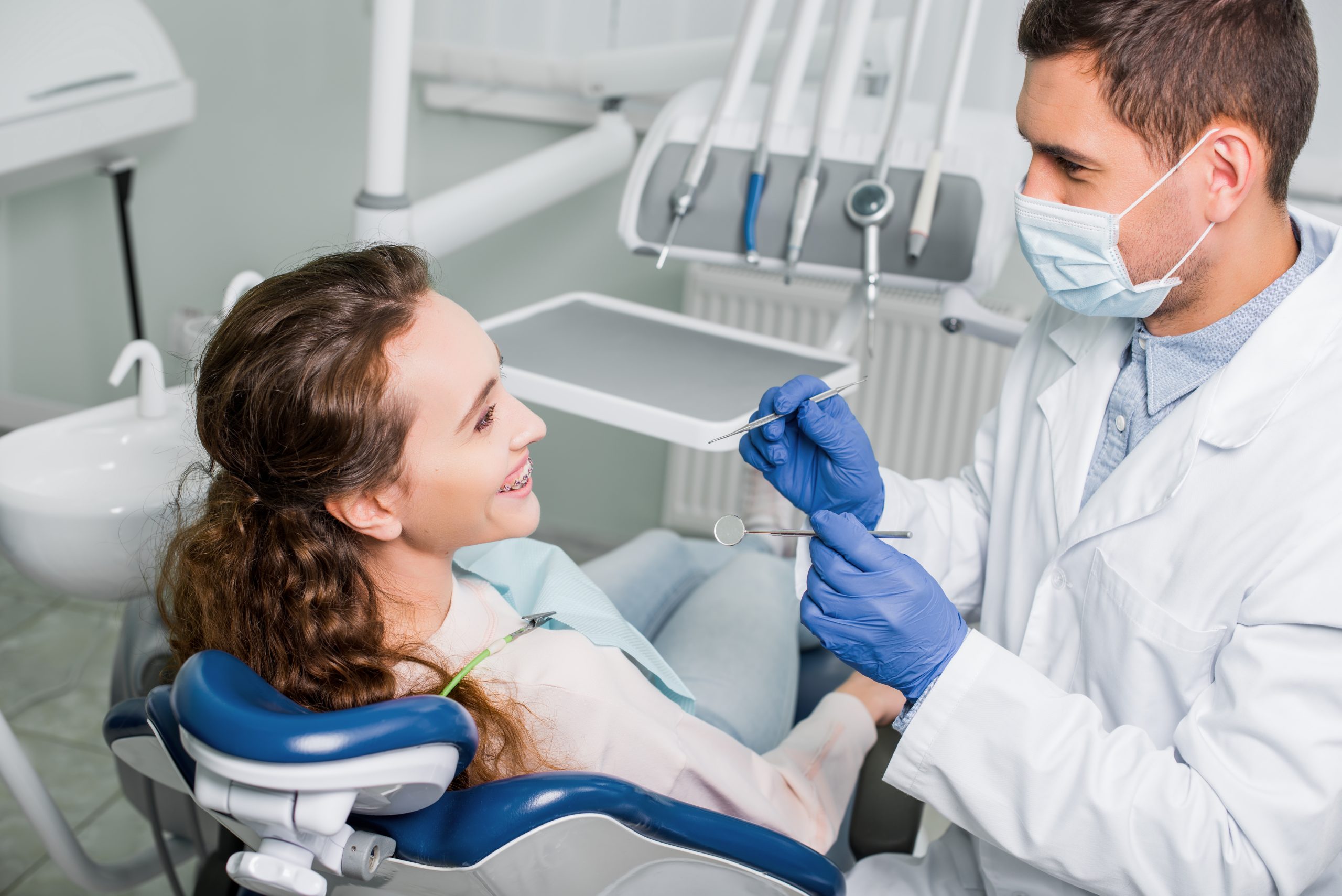Are you wondering about managing pain after getting a dental crown? Experiencing some discomfort is common, but it typically subsides as your mouth adjusts to the new crown.
Getting a Dental Crown: Understanding Dental Crown Pain
Experiencing pain after getting a dental crown is not uncommon and can be attributed to several factors. The procedure involves reshaping the affected tooth, which can lead to temporary discomfort as the surrounding tissues adjust. Additionally, the process of fitting the crown may cause some irritation to the gums and nerves, resulting in mild to moderate pain. This discomfort is usually short-lived and should subside as your mouth heals.
However, if the pain persists or intensifies, it could indicate an underlying issue that may need further attention. It’s important to monitor your symptoms and consult with your dentist if you have concerns. For more information on the longevity of dental crowns, you can read our article on How Long Do Dental Crowns Last?.
Common Causes of Discomfort
After getting a dental crown, it’s not uncommon to experience some discomfort. This can be due to a variety of reasons, such as the sensitivity of the tooth that was treated. The process of preparing the tooth for the crown can sometimes irritate the nerves, leading to temporary pain or sensitivity. Additionally, the fit of the crown itself might cause some initial discomfort as your mouth adjusts to the new addition.
Another common cause of discomfort after getting a dental crown is inflammation of the surrounding gum tissue. The procedure can sometimes cause minor trauma to the gums, resulting in soreness or swelling. It’s also possible for the bite to feel slightly off, which can lead to jaw pain or headaches. If you’re experiencing any of these issues, it’s important to remember that they are typically temporary. For more information on this topic, you can visit Kennesaw’s Best Dental Crowns.
Normal Healing Process
After getting a dental crown, it’s important to understand the normal healing process to ensure your recovery is on track. Typically, you may experience some mild discomfort or sensitivity in the treated area, which is a common response as your mouth adjusts to the new crown. This discomfort usually subsides within a few days to a week. Swelling and minor inflammation around the gum line can also occur but should gradually decrease. It’s essential to monitor your symptoms and be aware that while some initial discomfort is normal, persistent pain or unusual symptoms may require further attention from your dental professional.
When to Contact Your Dentist
After getting a dental crown, it’s essential to monitor your pain levels and overall oral health. While some discomfort is normal, persistent or severe pain could indicate an underlying issue that needs professional attention. If you experience prolonged sensitivity, swelling, or difficulty biting down, it may be time to reach out to your dentist. Additionally, any signs of infection, such as fever or pus, should not be ignored. For those in the Kennesaw area, Dentistry & Orthodontics at Kennesaw Point is available to address any concerns you may have after getting a dental crown. Learn more by visiting your local Kennesaw Dentist.
Potential Complications to Watch
After getting a dental crown, it’s important to be aware of potential complications that may arise. Some individuals might experience increased sensitivity to hot or cold temperatures, which can be a sign of nerve irritation. Additionally, if the crown is not fitted properly, it could lead to discomfort or even pain when biting down. In some cases, the crown might become loose or fall off, necessitating further dental visits. It’s also possible for the underlying tooth to develop decay if the crown does not seal it adequately. Monitoring these potential issues can help ensure that any complications are addressed promptly.
Temporary Sensitivity Issues
After getting a dental crown, it’s common to experience temporary sensitivity issues. This sensitivity often occurs when consuming hot or cold foods and beverages, and it typically subsides within a few days to a week. The process of getting a dental crown involves reshaping the tooth and fitting it with a new cap, which can irritate the nerves and tissues surrounding the tooth. To manage this discomfort, consider using toothpaste designed for sensitive teeth and avoid extremely hot or cold foods until the sensitivity diminishes. If the sensitivity persists beyond a week, consult your dentist to ensure there are no underlying issues.
Long-term Pain Concerns
Experiencing long-term pain after getting a dental crown can be concerning and may indicate underlying issues that need to be addressed. While some discomfort is normal immediately following the procedure, persistent pain could suggest problems such as an ill-fitting crown, nerve damage, or an infection. It’s crucial to consult with your dentist if you experience ongoing pain after getting a dental crown to ensure proper diagnosis and treatment. Ignoring these symptoms can lead to more severe dental complications, so timely intervention is essential for maintaining oral health.
Managing Swelling and Inflammation
After getting a dental crown, managing swelling and inflammation is crucial for a smooth recovery. To reduce swelling, apply an ice pack to the affected area for 15-20 minutes every few hours during the first 24-48 hours post-procedure. Over-the-counter anti-inflammatory medications, such as ibuprofen, can also help alleviate discomfort and reduce inflammation. Additionally, keeping your head elevated while resting can prevent excess blood flow to the area, further minimizing swelling. Remember to follow your dentist’s specific aftercare instructions to ensure optimal healing and comfort.
Recognizing Infection Symptoms
After getting a dental crown, it’s crucial to monitor for any signs of infection to ensure proper healing and avoid complications. Common symptoms of an infection include persistent pain, swelling, redness around the crown, and a foul taste or odor in your mouth. If you experience fever or notice pus near the affected area, it’s essential to contact your dentist immediately. Early detection and treatment of an infection can prevent further issues and promote a smoother recovery process.
Conclusion
Managing pain after getting a dental crown is crucial for your comfort and recovery. If you have any concerns, call us at 678-275-2066 or read our reviews on Google Maps.







